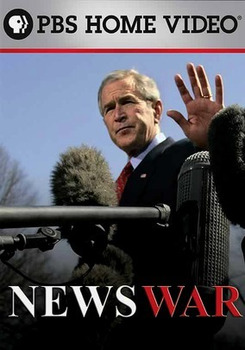Media ethics can range from what is right to what is wrong when it comes to the actions taken by people working in the field of journalism and mass communications. When individuals think about media ethics, their first instinct is to get angry or impatient with news networks, but it isn’t about the news networks themselves, but the standards of the actions taken by workers in the media. When taking journalism classes, the first thing one learn’s is about the ethics of what you put on paper. You have a duty to not only yourself to be true, but to others as well. 

This piece was about the ethical decisions made during the Bush Administration’s claims regarding weapons of mass destruction in Iraq, otherwise known as W.M.D. The piece reiterates the advantage the government has when it wants to sell a specific point of view. This idea was fueled by the Nation’s leading newspapers, which at the time included the New York Times. It was a “conscious loop” of information being funneled from the government to journalists, to being published and then nonchalantly referenced by elected officials in public interviews. The downside of this began when journalists began realizing that their sources were feeding them false information, so not only were news outlets producing what we call today “fake news,” but it was also being preached by the White House as well. Some tried to rest their case by saying they were only as good as their sources, but that in itself is not an ethical statement. If your sources are wrong, you are wrong, but the real question was, did these reporters and these officials know that the information they were receiving was false?
This is where the two main ethical emphases come into play. There is communitarian ethics and libertarian ethics. Communitarian ethics, in basic terms, are ethics that would improve society by sublimating personal concerns to community wishes and cooperatively making decisions that are designed to eliminate friction. Libertarian ethics would improve society by stressing self-improvement and individual decision-making. In this case, the New York Times, their reporters and the Bush Administration were practicing libertarian ethics; they were reporting to the public in hopes to benefit themselves and profit off of what they were reporting. The reasoning behind these unethical practices was to try and justify the claim of W.M.D in Iraq that was made by President Bush. Months after this claim there were still no weapons to be found and people were beginning to question that. This is when Bush stated in his State of Union Address that Sadam Hussein had requested a large amount of uranium from the African country of Niger to further his argument about the existence of W.M.D in Iraq and even when proven false, his administration failed to correct the record. Bush’s instinct, which is the first step of moral progress, was not to stay true to the people, but to defend himself and also throw the C.I.A under the bus because he said he got his information from Central Intelligence. His custom was what was right for him, as mentioned above. The third and highest general level of morality is based on conscience, which is conduct that appears right is that which is approved by the agent’s own personally developed judgment of what is right or wrong. The conscience is developed by the person’s own reasoning, building on custom and instinct. His conscience was incorrect and immoral, unethical and as mentioned in the piece, the Bush Administration was amongst one of the most secretive, some compared his term to that of the Watergate scandal.
Bush falls closely under the teleological ethical theory. This theory says that the person trying to decide what to do attempts to predict what the consequences will be if A is done instead of B. The object is to choose the action that will bring the most good to the party the actor deems most important, and in this case he was an egoist.
No comments:
Post a Comment